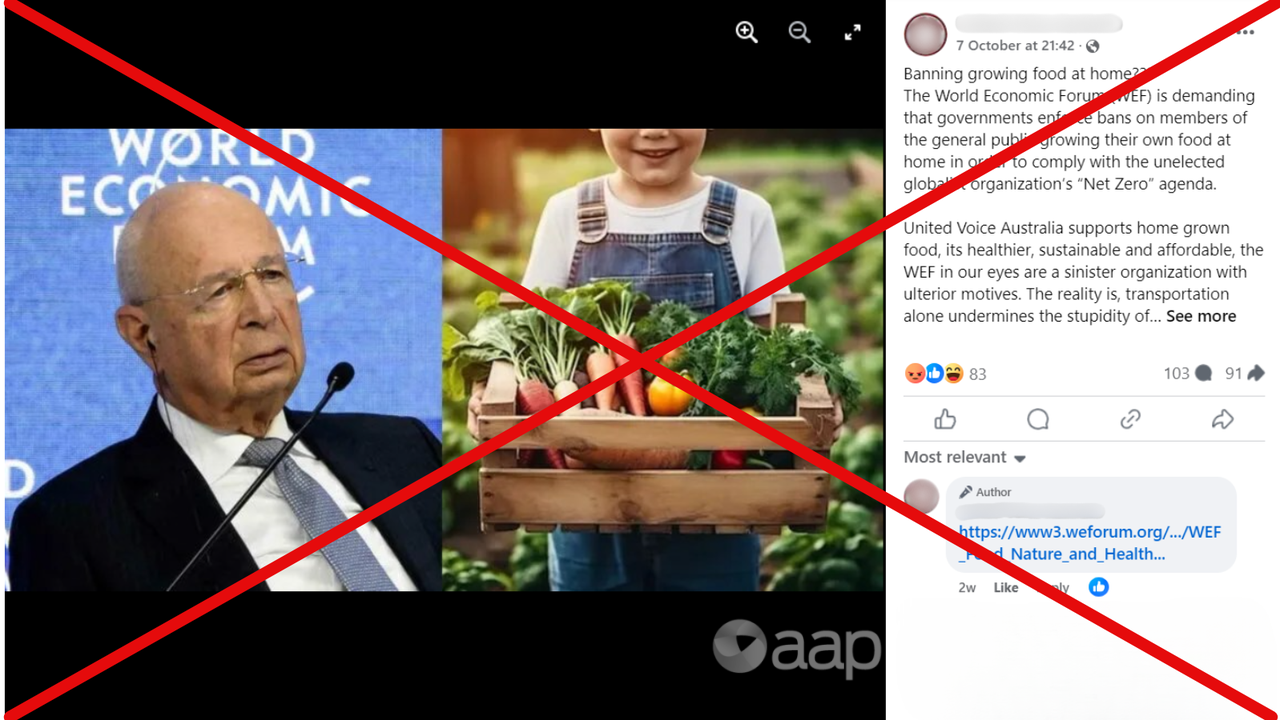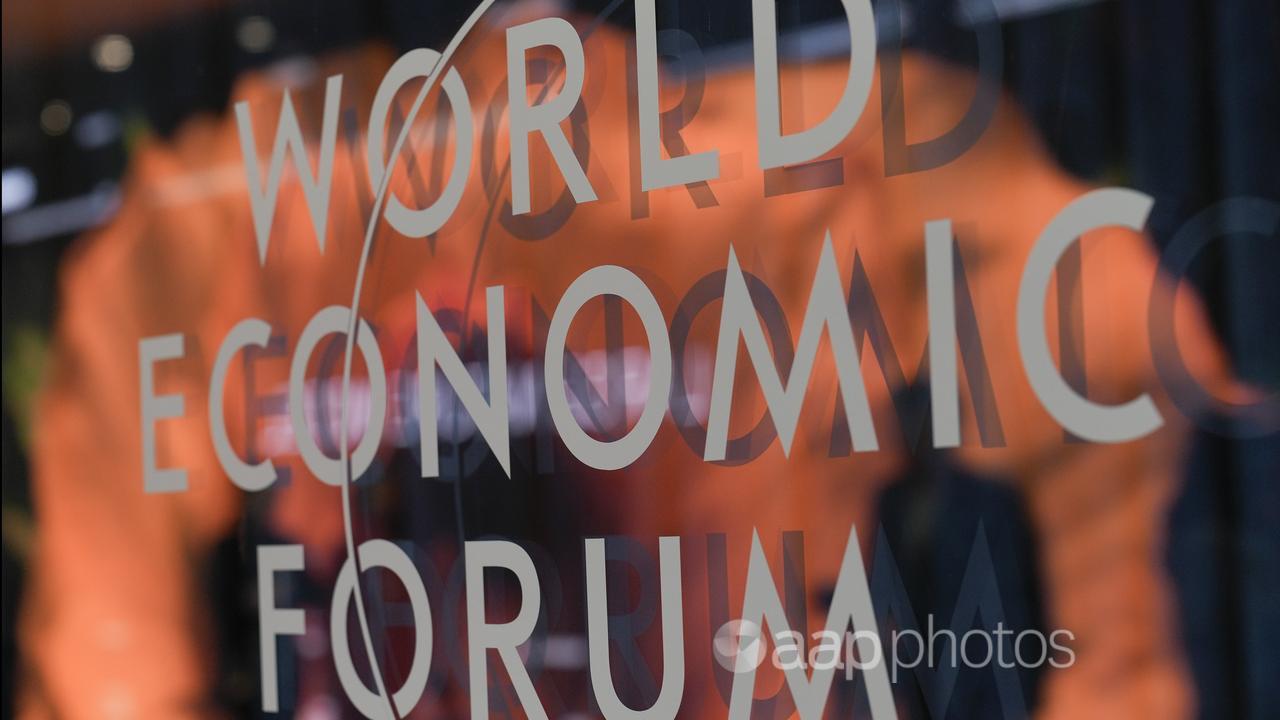AAP FACTCHECK – A recurring claim that the World Economic Forum (WEF) wants to ban people from growing their own food at home has taken root online again.
A Facebook post shows a picture of forum founder Klaus Schwab and is captioned: “The World Economic Forum (WEF) is demanding that governments enforce bans on members of the general public growing their own food at home in order to comply with the unelected globalist organization’s ‘Net Zero’ agenda.”
The caption goes on: “According to so-called ‘experts’ behind a recent WEF study, researchers apparently discovered that the ‘carbon footprint’ of home-grown food is ‘destroying the planet … the WEF and other globalist climate organizations are now demanding that governments intervene and ban individuals from growing their own food in order to ‘save the planet’ from ‘global warming’.”

A comment then links to a 2023 WEF report on sustainable food systems.
A spokesperson for the WEF, an international non-governmental think tank and lobbying organisation, told AAP FactCheck it has no such policy.
“The World Economic Forum does not endorse any policy that advocates for prohibiting individuals from growing food in their personal gardens.
“Furthermore, we are not advocating for governments worldwide to impose bans on individuals engaging in such agricultural practices within their own premises.”
The link included in the Facebook post takes readers to a 64-page WEF report titled “Food, Nature and Health Transitions – Repeatable Country Models”. The paper does not call for the banning of personal gardens or agriculture.

The report has nothing to do with the growing of produce at home. Instead, it explores ideas for improving global food systems with a focus on reliability and sustainability.
It calls for countries to “build integrated roadmaps for more inclusive, sustainable, healthy and resilient food systems” through a variety of proposed initiatives (page 5).
“If all key food system stakeholders can collectively step up and work together, it will be possible to evolve food systems in ways that nourish growing populations, build greater resilience, and enable farmers and all those engaged in these systems to live with dignity, while restoring the planet for future generations,” the executive summary says.
The spurious food ban rumour is similar to another claim about the WEF banning home-grown food that AAP FactCheck debunked previously, which also claimed to be based on WEF research.
In that instance, the claim was referring to a University of Michigan study, the authors of which said they had no link to the WEF.
That study compared the carbon footprints of urban and conventional agriculture and did find that the carbon footprint from urban agriculture was six times greater than conventional agriculture.
However, a co-author of that study told AAP FactCheck “we have no interest in banning urban food growing”.
The latest post seems to conflate the Michigan study with the completely separate January 2023 WEF report, with its reference to a “recent WEF study” of carbon footprints of home-grown food.
The Verdict
False – The claim is inaccurate.
AAP FactCheck is an accredited member of the International Fact-Checking Network. To keep up with our latest fact checks, follow us on Facebook, Twitter and Instagram.
All information, text and images included on the AAP Websites is for personal use only and may not be re-written, copied, re-sold or re-distributed, framed, linked, shared onto social media or otherwise used whether for compensation of any kind or not, unless you have the prior written permission of AAP. For more information, please refer to our standard terms and conditions.


















